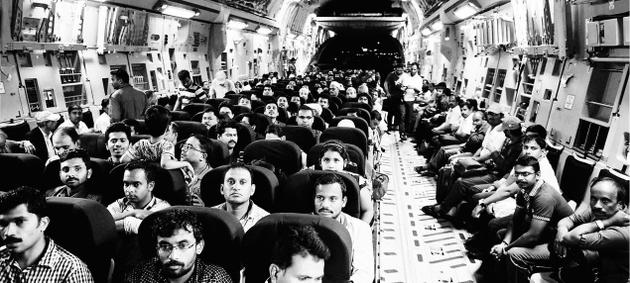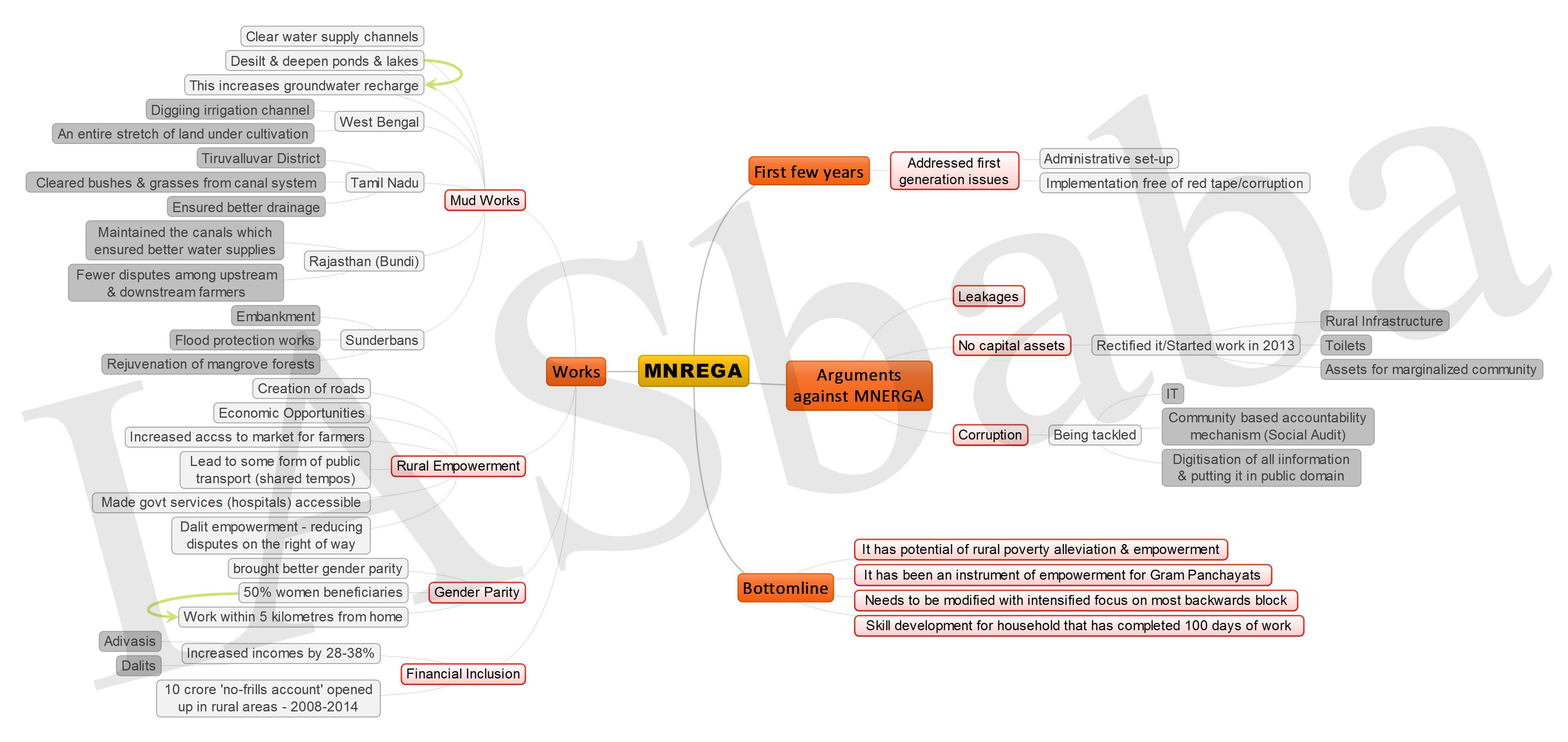IASbaba's Daily Current Affairs Analysis, IASbaba's Daily Current Affairs Feb 2016, International, National, UPSC
Archives
IASbaba’s Daily Current Affairs – 4th February, 2016
INTERNATIONAL
TOPIC: General studies 2:
- Government policies and interventions for development in various sectors and issues arising out of their design and implementation.
- India and its neighborhood- relations.
- Bilateral, regional and global groupings and agreements involving India and/or affecting India’s interests.
- Effect of policies and politics of developed and developing countries on India’s interests, Indian diaspora.
- Important International institutions, agencies and fora- their structure, mandate.
Defending the diaspora

Many people involved in the massive evacuation of Indian expatriates from Kuwait in 1990 are disappointed at the mischaracterisation of the role of the politicians, diplomats and airline officials in Airlift , a new Hindi film based on that incident.
Why in news?
- In airlift, a new Hindi film based on the 1990 Kuwait incident, the film makers have dramatized the scenes to set fiction against facts.
- Diplomats are rightly upset that the story of the biggest ever air evacuation in history, carried out by a resource-strapped government in the throes of political and economic crises, has deliberately painted Foreign Service officers in negative light.
It is unfair and self-defeating to cast them in poor light:
- Whatever people might think of the Indian government, when it comes to expatriate citizens in conflict zones, our diplomats go to great extents to ensure their safety.
- The airlift from Kuwait is only the biggest and the most famous one — more recently Indian diplomats and armed forces coordinated mass evacuations from Lebanon (in 2006), Libya (2011) and Yemen (2015).
- This is a job our diplomats, armed forces and airline officials do well, and it is unfair and self-defeating to cast them in poor light.
Indians around the world:
- According to government figures, as of January 2015, there were 11 million Non-Resident Indians (NRIs) and 17 million Persons of Indian Origin (PIOs) around the world.
- The largest populations were in the Gulf, the United States, United Kingdom, Southeast Asia and Nepal.
- On the thin end, there were seven Indians in North Korea, two in Nauru and one in
Government’s relationship with overseas Indians:
- The government’s relationship with overseas Indians has been twofold.
- Indian citizens (NRIs) were treated differently from ethnic Indians holding other citizenships.
- While the government concerned itself with the former, the latter were encouraged to be loyal and upstanding citizens of their respective countries.
This policy has served India and overseas Indians well.
- If the Indian diaspora is highly successful and integrated into the societies around the world, it is in part due to the fact that the loyalties of persons of Indian origin are beyond doubt.
- They might retain Indian customs and faith, but they bat for the interests of the country they are citizens of.
Courting the diaspora:
- The longstanding policy began to shift in the 1990s, with India looking East and West initially due to economic adversity and subsequently due to opportunity.
- The Atal Bihari Vajpayee government put the courtship on a formal footing with a high-level committee recommending the long-term visas under a PIO Card Scheme, a grand conference and recognition in the form of awards.
- The United Progressive Alliance government constituted an entire ministry for overseas Indians which, wisely, the present government has recently decided to merge back into the MEA.
Works by the present government:
- No Prime Minister has gone so far out to court overseas Indians as the present one.
- Reaching out to the humble construction worker, the middle-class professional and the wealthy elite has galvanised the emotional links NRIs have with their home country.
- The prime minister has reinforced the growing feeling among NRIs since the turn of the century that India is a great country to be from.
Airlifts of the future:
- The airlifts and naval evacuations of the future might be more complex in a context where there is a conflation of NRIs, PIO card-holders and other ethnic Indians with foreign citizenships.
- During crises when time and resources are tight, who should Indian diplomats prioritise?
- Will they have moral grounds to put non-citizens on a lower priority than citizens?
- If they do, what impact will it have on the Indian government’s reputation and the expectations it has created?
Need of the hour:
- The external intelligence establishment needs to be reoriented towards gathering and analysing information relating to the threats that diaspora populations might face.
- The conceptual move from defending the homeland to defending the diaspora needs a concomitant retooling of government machinery.
Way ahead:
- Diaspora security will require more naval ships, wider patrolling, foreign berthing and outposts.
- Military heavy lifting capacity apart, it will also require policy measures, like for instance, licence conditions in civil aviation requiring private airlines to put their aircraft and crew at the government’s disposal during emergencies.
- The commitments that India makes require the state to have the capacity to redeem them.
- If we widen the scope of our commitments, we must invest in the capacity to carry out the airlifts of the future.
Connecting the dots:
- Critically examine the role played by Indian diaspora to promote socio economic growth within India.
- Explain measures taken by Indian government to attract Indian diaspora towards promoting the growth and development of the country.
NATIONAL
TOPIC:
General studies 1:
- Social empowerment, Development Issues
General studies 2:
- Functions and responsibilities of the Union and the States, Local Government; Indian Constitution- features, amendments, significant provisions
- Welfare schemes for vulnerable sections of the population by the Centre and States and the performance of these schemes; mechanisms, laws, institutions and Bodies constituted for the protection and betterment of these vulnerable sections.
- Government policies and interventions for development in various sectors and issues arising out of their design and implementation.
State and the Tribal Communities- Economic Injustice
Indigenous tribes: Constitutes about 8% of India’s population (about 100 million people)
Legislation—
- Forest Rights Act (2006)— Communities had the sole right to sell proceeds from forests
- Panchayats (Extension to Scheduled Areas) Act (1996)—Established a framework for local self-governance in demarcated (or “scheduled”) areas. The FRA clarified further that these communities had the sole right to sell proceeds from forests.
Implementation of PESA and FRA— Fraught with challenges
In a nutshell, riddled with—
- Procedural Delays
- Bureaucratic Complications
- Corruption
- Resistance & Interference from the Forest Department
- Interests of Government backed Corporate Group
- Land Mafia’s and vested interests
Process of documenting tribal claims is a difficult task, involving democratically constituted Gram Sabhas (Village Assemblies) as per the provisions of the 73rd Constitutional Amendment on Panchayati Raj and PESA—
- Identified land- Lower in size
- Faulty GPS
- Forged Revenue records
Ongoing power struggle between the bureaucracy and tribal communities—The main culprit is mostly the limited interpretation of the acts, with governments recognising only individual property and not community ownership of land leading to a lack of evidence on the ground for the stated joint ownership
- Difficult to furnish proof of residence at times
- Appeals against non-implementation: No institutional Mechanism
- No awareness program
- No valid reasons behind rejection
- Improper Social Audit
Assault on tribal lifestyles and livelihoods— States with a large proportion of tribals would like to be free from central regulations that restrict them from exploiting the resource-rich catchments that lie within their territory but the Union has changed the law to throw open up to 40% of the country’s (ostensibly only degraded) forests to private sector management.
- ‘Degraded’ forests are not as expendable as the MoEF makes them out to be as the degraded natural forests have 50-100 species of trees per hectare and allowing the private sector to use these lands for monoculture could have a ruinous impact on the ecosystem.
- These guidelines also states that tribal communities could access forest produce in only 10-15% of the land proposed to be leased out to private players; if implemented, would be in contravention of the FRA that recognised tribal communities as the owners and managers of their forests
IASbaba’s Views—
- The struggle behind the establishment of the local governance in the tribal areas have not been easy and therefore, the government should make an attempt to sensitively taking care of all the loopholes- right from hand-holding and capacity building to utilising funds and executing projects.
- Better infrastructural facilities will prove to be a lifeline in advancing the economic usage of the forest produce
- Prohibit forest department officials to demand transit permits for transport of minor forest produce
- Gram Sabhas: Should be made the body to give permits and make plans for forest conservation and protection
- Efforts should be put in via the Ministry of Tribal Affairs in protecting the rights of tribal communities thereby, acting as a benchmark for the officials and activists to adhere to in future
- Political support is the key and thus, right from the issues plaguing Panchayati Raj to the CPR issues, the friction can be at least contained if the priorities are set right in a proper way within a recognized framework— Containment of the understandable degree of natural friction between the “development” priorities of the state and the “development” priorities of tribal communities, with a third perspective of the “development” priorities of civil society that is working to improve tribal welfare
Connecting the Dots:
- Is there a requirement of hamlet-level gram sabhas in tribal areas? Discuss the need and its importance.
- Discuss the back-breaking tale of the obstruction of the workings of the Forest Rights Act.
Related Articles:
Tribal Ministry relents over Forest Rights Act (FRA)
MUST READ
The illusion of equity in the classroom
For Detailed Analysis on RTE’ Act, refer the below link
Right to Education (RTE) Act: It’s working and Challenges
Gastric cancer: Stepping up the fight
Time to debate Governors’ powers
Related Articles:
Article 356—Arunachal Pradesh: Is President’s rule being misused?
Battle with many corners- ICDS, the primary scheme targeting malnutrition, needs to be broadened with the help of the National Nutrition Mission.
Related Articles:
India: Epicentre of Global Malnutrition
Sex determination: An old law, a new debate
Related Articles:
India’s Inverted Abortion Politics
The manufacturing conundrum-Manufacturing has been a big source of jobs in Asia. But recent trends in India suggest the relationship between manufacturing and job creation may have weakened considerably
The problem with inflation targeting– Once a quantitative target is set, it will be politically impossible to increase it, should this become necessary, given the political sensitivity of the inflation issue
Focus is on placements under Pradhan Mantri Kaushal Vikas Yojana
Disciplining errant teachers- Any disciplinary action by official hierarchy will not work. The local community should be empowered to do so
MIND MAPS
1. MNREGA















